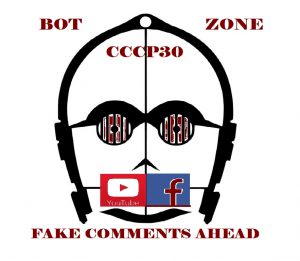Putin Antisocial Media Cyber Warfare
How Putin used social media platforms like FakesBook to cultivate social disorder. This is the Russian plot to hack the minds of swing state voters.
Here’s some background music…
 Malcolm Nance reveals how Russia did it with expertise from his US Intelligence resources.
Malcolm Nance reveals how Russia did it with expertise from his US Intelligence resources.
Russian cyber warfare into the USA
Russia has deployed sophisticated cyber capabilities to conduct disinformation, propaganda, espionage, and destructive cyberattacks globally. To conduct these operations, Russia maintains numerous units that are overseen by various security and intelligence agencies, such as the GRU (military intelligence), the SVR (foreign intelligence), and the FSB (domestic security). Russia’s security agencies compete with each other and often conduct similar operations on the same targets, making specific attribution and motivation assessments difficult.
Russia’s cyber warfare aims to undermine the US and its allies, to advance its own interests and influence, and to sow chaos and confusion in the international system. Russia has targeted US critical infrastructure, political institutions, media outlets, and private organizations, as well as individual citizens and officials. Some of the most notorious and damaging cyber operations attributed to Russia include the 2016 election interference, the 2020 SolarWinds breach, the 2021 Colonial Pipeline ransomware attack, and the ongoing cyber campaign against Ukraine.

Putin and the Trump campaign
Russian President Vladimir Putin authorized influence operations to help Donald Trump in the 2016 and 2020 US presidential elections, according to declassified intelligence assessments. Moscow spread misleading or unsubstantiated allegations about the eventual winner, Joe Biden, and sought to denigrate his candidacy and the Democratic Party. Russia also tried to boost Trump’s chances of victory by amplifying his messages and promoting his allies.
Putin’s support for Trump was driven by several factors, including his personal animosity toward Biden, his preference for a weak and divided US, his desire to undermine the legitimacy and credibility of US democracy, and his expectation of a more favorable relationship with Trump on issues such as sanctions, NATO, and Syria.
However, Putin’s efforts did not achieve their intended outcomes, as Biden won the election and Trump failed to overturn the results. Moreover, Putin’s interference provoked a strong backlash from the US government and society, leading to sanctions, indictments, expulsions, and other measures against Russia and its agents. The US also increased its cyber defenses and resilience and coordinated with its allies and partners to counter Russia’s malignant activities.
Here’s some examples of Russian infiltration of the Republican’t Party




